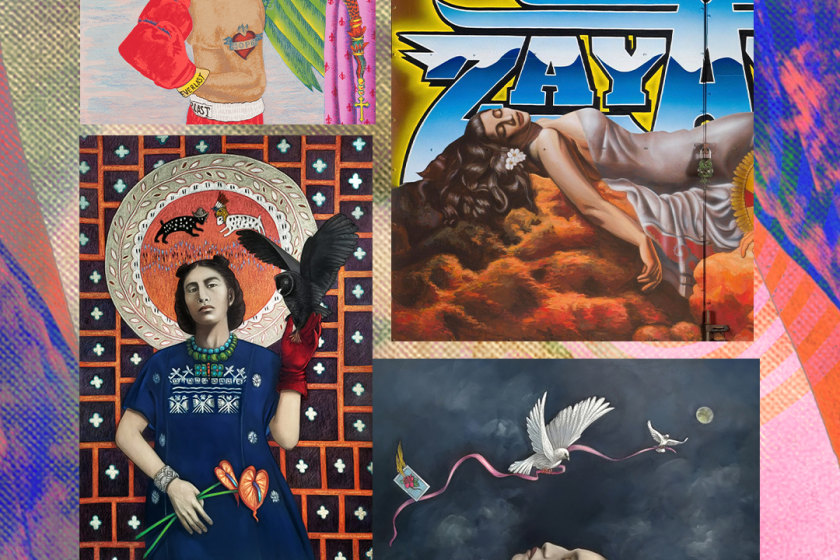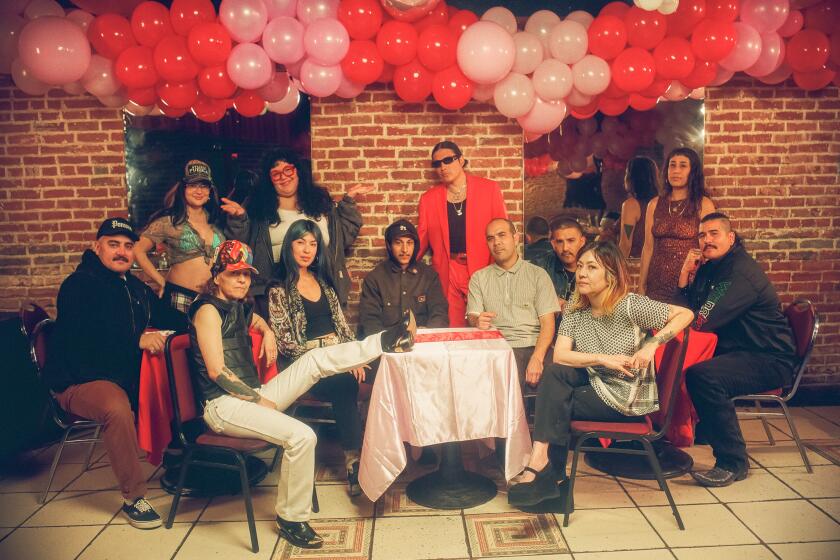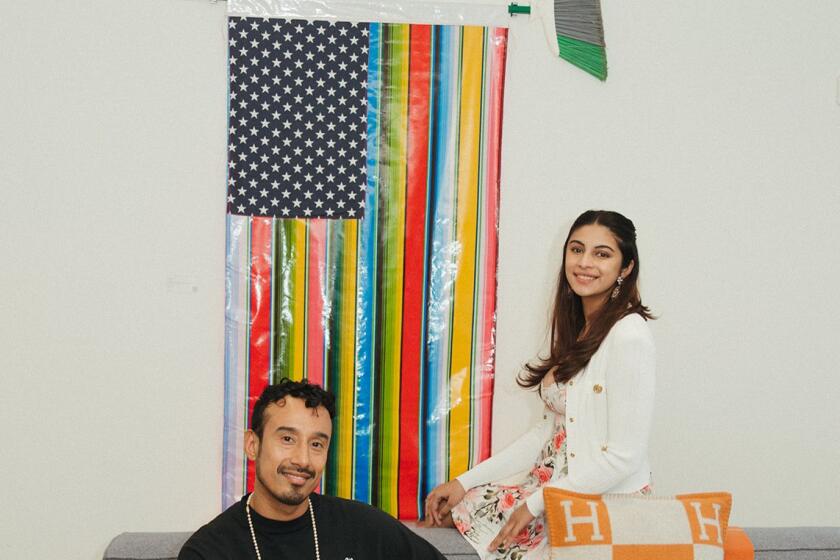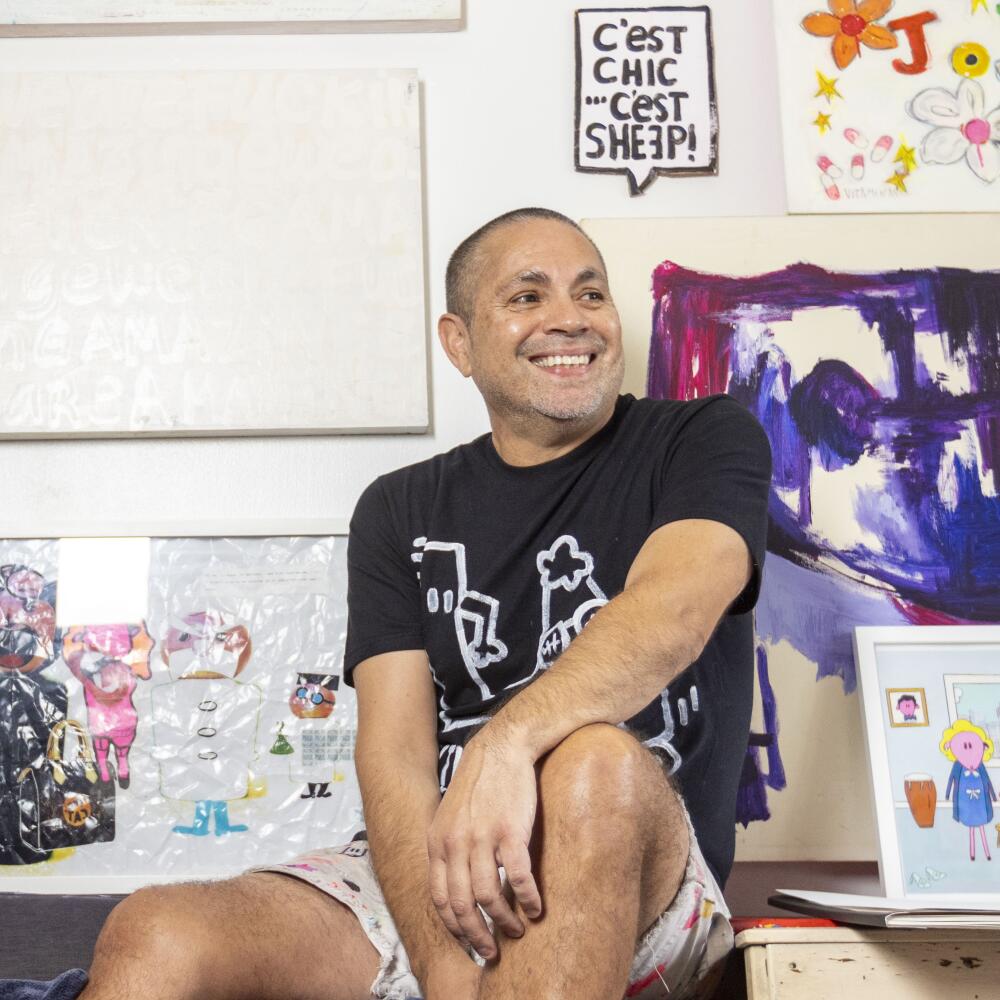
- Share via
It began with a quote by Alexander McQueen: “I am the pink sheep in the family.”
In 2013, L.A.-based contemporary street artist Ricky Sencion read a biography of the late designer and immediately connected with that feeling.
More than a black sheep, but rather a pink sheep, was how Sencion felt growing up as a queer child of Mexican immigrants on the Eastside of L.A. Here, his youth was marked by his differences— he was ridiculed for speaking Spanish during a time of anti-Latino prejudice in the ’80s, and like many LGBTQ+ kids of his era, was restricted from playing with dolls.
The self-taught artist, who also goes by the alias “Little Ricky,” never imagined McQueen’s statement would help him manifest an internal struggle of self-identity into an all-consuming project exploring queerness.
These Los Angeles-based shows welcome communities into their realities. Take a peek. Start a conversation and witness some of the city’s creativity firsthand.
“When I read that sentence, even though I didn’t know what I was going to be doing with it, I knew that that’s what I was looking for my whole life,” Sencion said.
He bought a toy sheep and started doodling little creatures until the final form solidified on paper. It was everything he’d been searching for: self-acceptance and liberation. And he had to share that joy with others.
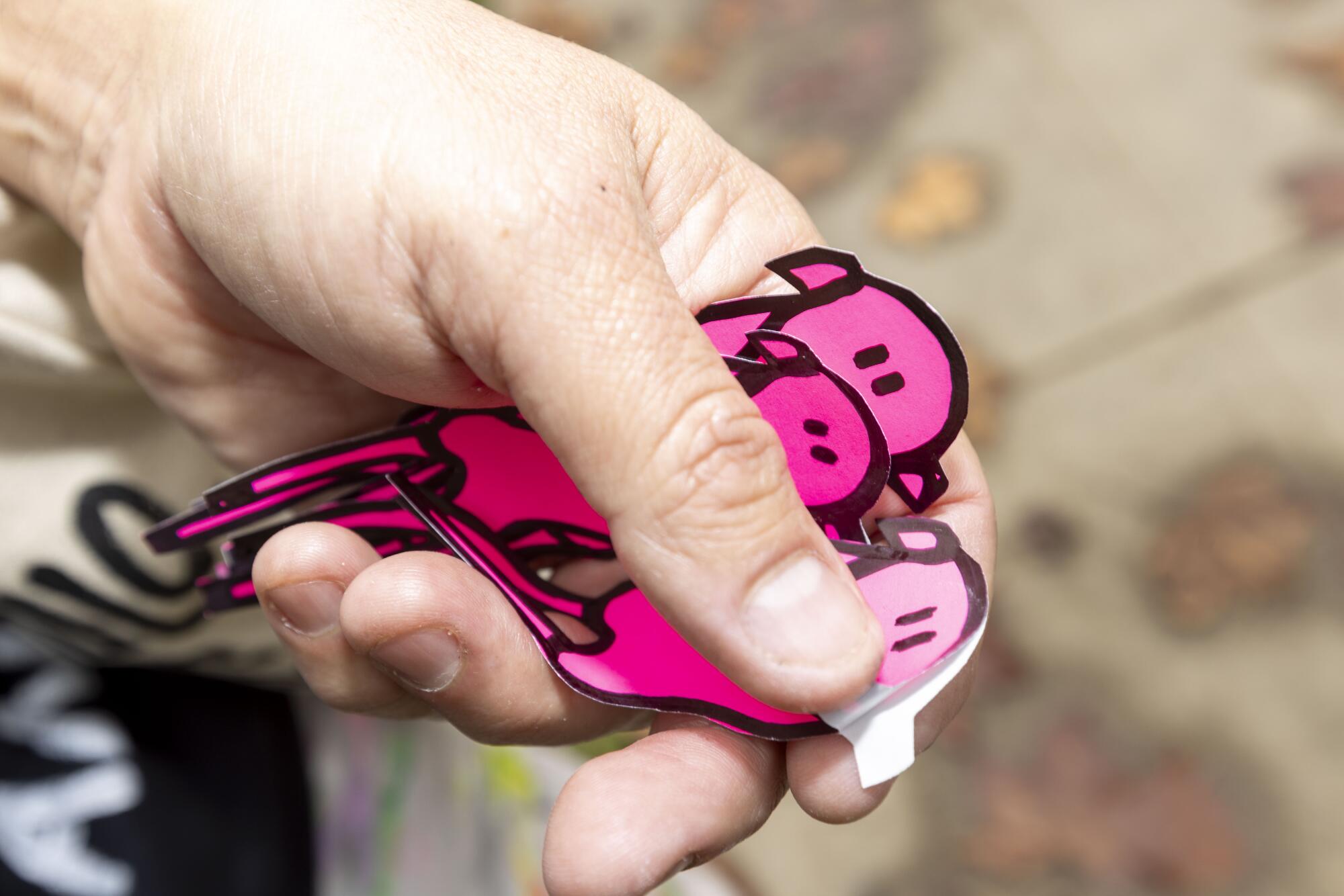
He posted his first sheep on the streets of L.A. in March 2013. More than a decade later, the artist has amassed an inventory of thousands of his signature pink sheep, from palm-sized stickers slapped on lamp posts on Melrose Avenue to wheat pastings on walls along Hollywood Boulevard. His sheep have attracted fans who follow the herd in person and share his work on social media — with sightings as far as the Williamsburg Bridge in New York City.
“When somebody sees them on the street, whether they stop and stare or even from a glance, [I hope] that they feel a moment of joy for themselves and who they are,” Sencion said.
Sencion didn’t intend to become a street artist. He studied English at UC Berkeley and worked odd jobs in the Bay Area and on the East Coast, but nothing seemed to stick. It wasn’t until he was laid off from his longest-running job at a travel accessory company that he decided it was time to embrace his passion.
For the last decade, a community of artists have been in an evolving dialogue about what it means to make work in L.A. right now.
Since then, he’s developed street campaigns of sheep and other characters he calls “Moonsters.” Some may look like Madonna or Anna Wintour, pop culture personas who have been anointed as queer icons, while others carry inspirational phrases like “E(WE) are beautiful,” pronounced “you are beautiful.”
“I like to think that our being different is our superpower for all of us. Whether we’re queer or not,” Sencion said.
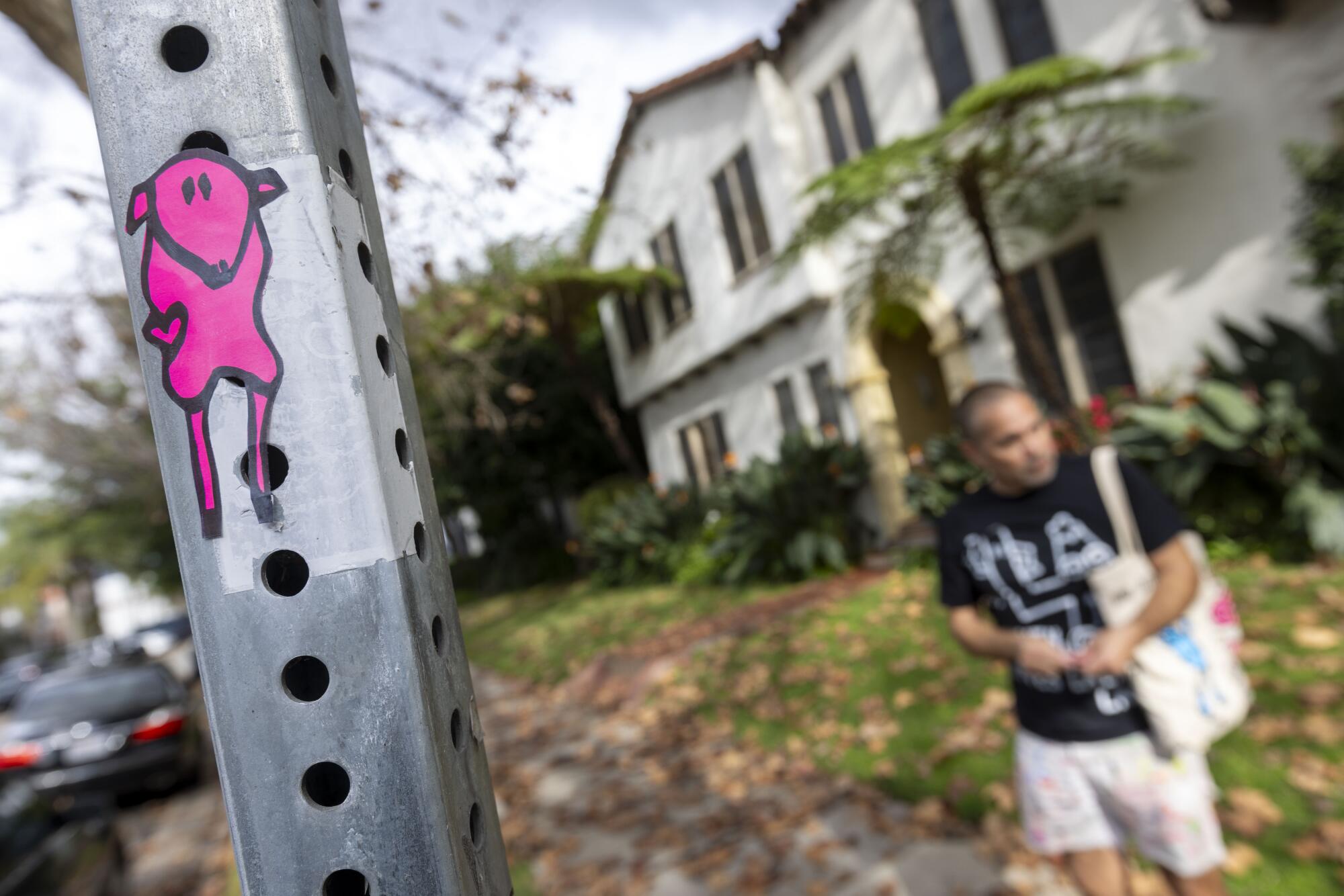
“What initially drew me to Ricky’s work was the playfulness, the whimsy, the color,” art historian Elizabeth Dastin said. “You often think of street art as being very aggressive and large with these messages that are overwhelmingly political.”
Dastin was first introduced to Sencion’s art a decade ago, after launching Art and Seeking, a platform aimed at bringing street art to the mainstream. While Sencion’s art is rooted in the LGBTQ+ community, Dastin was struck by how universal his message is, allowing the queer narratives and characters in his sheep to be approachable and joyous.
“He is one of the only openly queer street artists in Los Angeles that I’ve encountered and I think it’s really important for visibility that he’d be as ubiquitous as he is,” Dastin said.
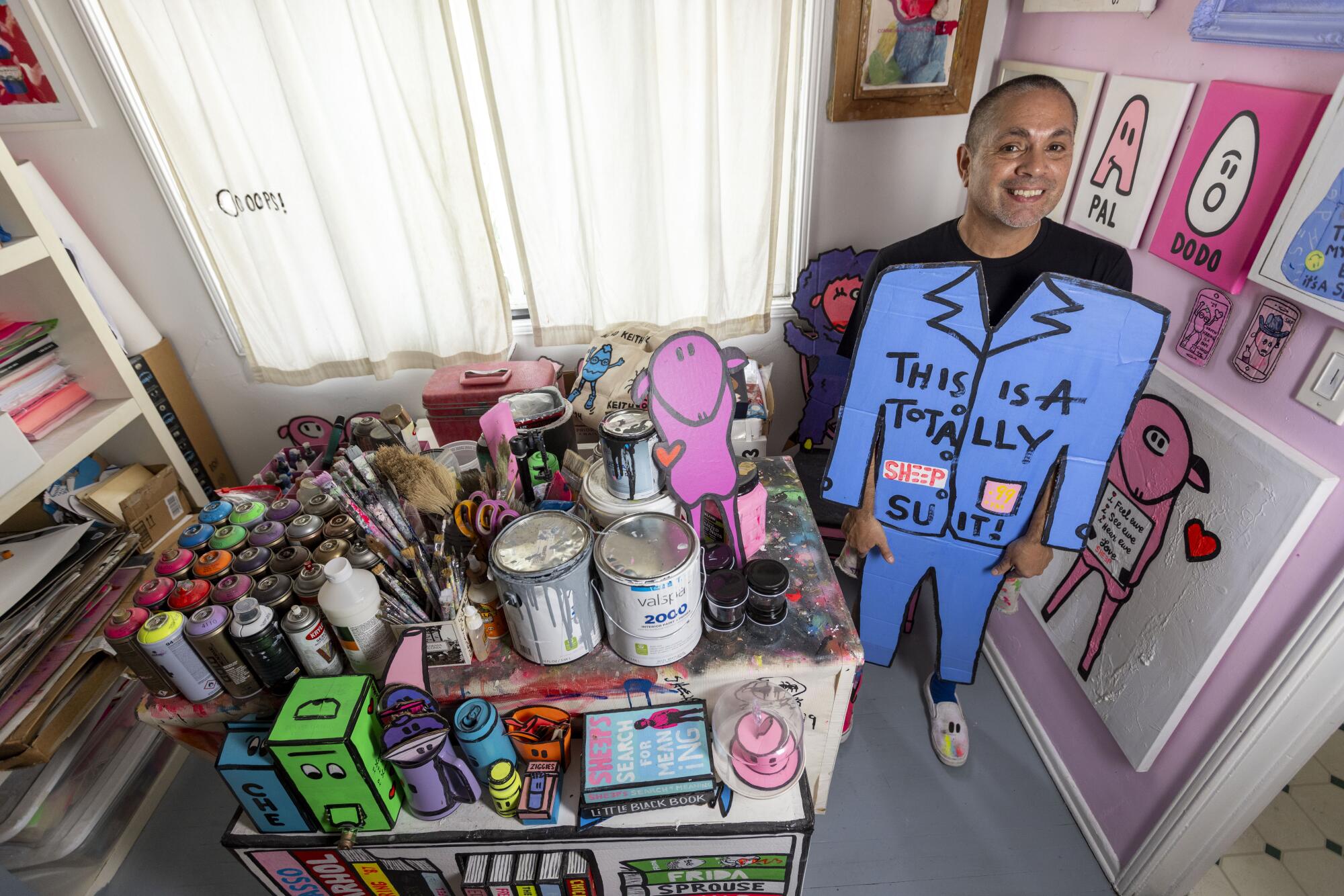
Although Sencion has been sharing his sheep with Angelenos for over a decade, his work has only recently been gaining recognition in L.A., with showings at galleries like Gabba Gallery , Wallspace and Art Share L.A.
Artist Steve Galindo says he’s witnessed how queer, trans and nonbinary artists like Sencion struggle to enter the conventional art world. Once he turned to curating, he saw the need to highlight underrepresented artists in smaller presentations to open doors to the mainstream.
“I want to help [these artists] reach that level where their work can become historicized and archived,” Galindo said.
Last summer, Galindo teamed up with art collector Arushi Kapoor to curate “Decoding Americana’s Queer Sensibilities,” a group exhibit showcasing LGBTQ+ artists. The intimate show at Kapoor’s Los Feliz home pushed viewers to expand the definition of Americana to include the multicultural and multidimensional landscape — one that is unapologetically queer. Sencion and his pink sheep fit right in.
‘Decoding Americana’s Queer Sensibilities,’ a group exhibit showcasing LGBTQ+ artists, encourages audiences to broaden their perception of queerness in America.
“Pink is the antithesis of black,” Galindo said, noting the experience of queerness as being made to feel like the “other.” “He brings light to the world with these characters. … He’s infused [queer sensibilities] innately within his work.”
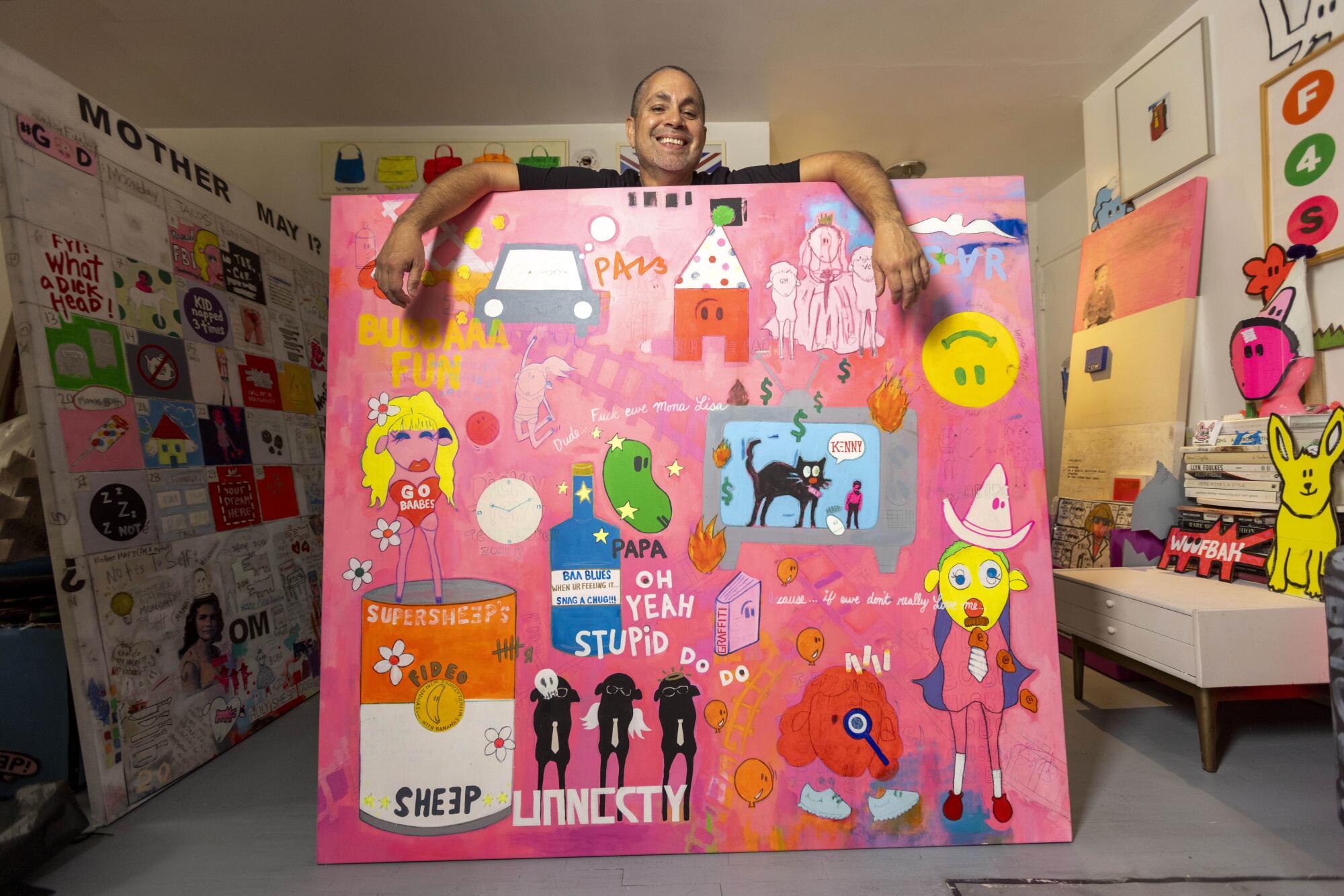
Following Galindo’s show, Sencion was invited to be part of a group exhibition at Art Share L.A. — his first time showcasing his latest series, “Littlez”, which pays homage to L.A. and his Mexican heritage.
These days Sencion is working on an autobiography made up of 365 paintings. “Doing this project is everything,” he said. “Not to just write about my life, but to paint it.” But his mission to spread joy through his sheep continues.
At his apartment and studio in Hancock Park, stacks of canvases cram a bright, colorful room that houses a chaotic mix of playful creatures resting on walls and tables. In the corner of his studio is a bag that holds all the supplies he needs to adorn the vacant walls of the city with his sheep characters: glue, stickers and paste-ups of sheep.
Next to his pattern-painted couch is the first sheep he ever posted on a wall. Two years after it went up, he found it weathered with its legs falling off. He took it and framed it beside his couch where he returns every night to create more pink sheep in hopes of bringing a smile to someone’s face.
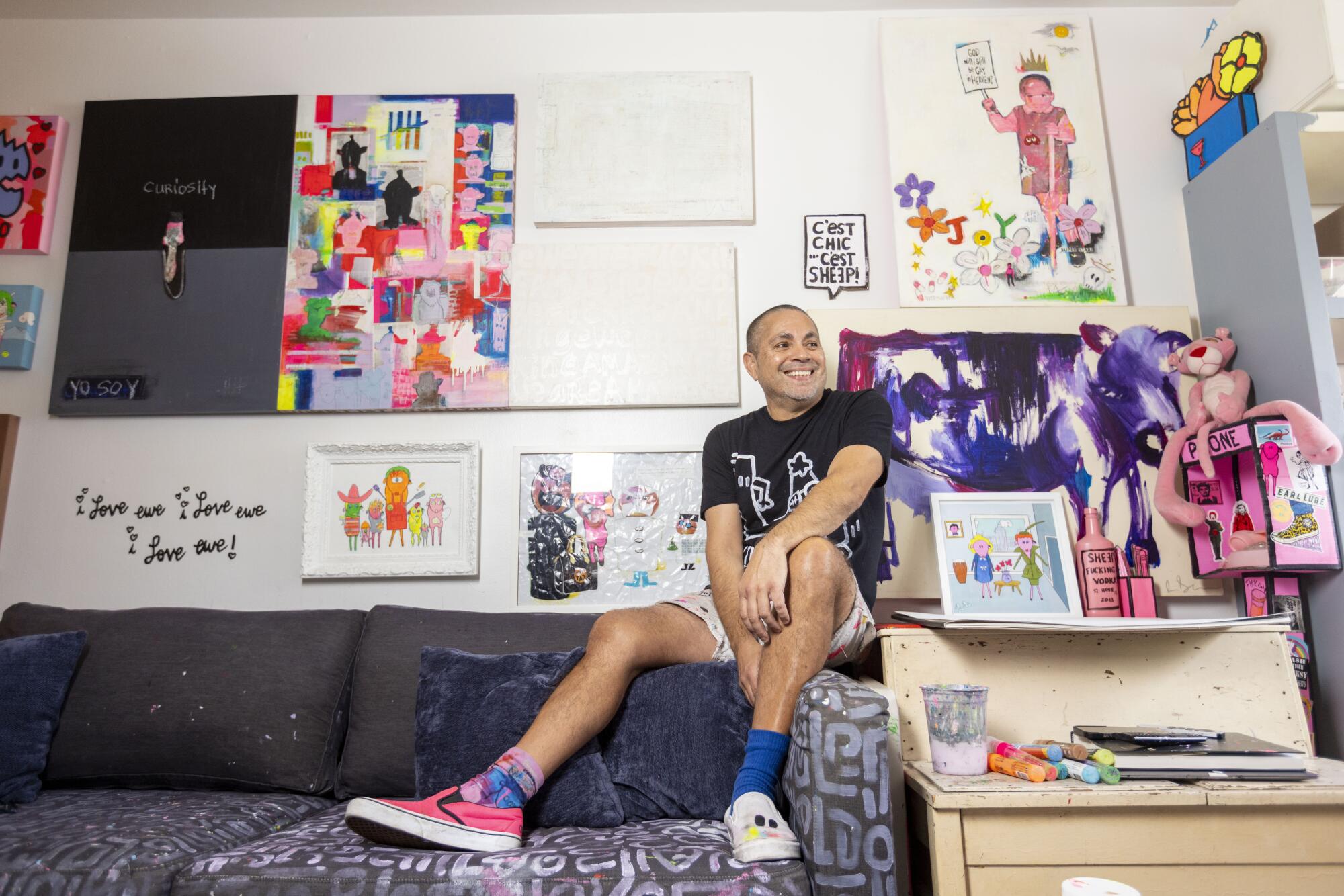
More to Read
The Latinx experience chronicled
Get the Latinx Files newsletter for stories that capture the multitudes within our communities.
You may occasionally receive promotional content from the Los Angeles Times.
